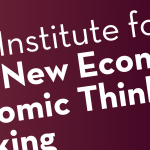revealing dynamics of which all Western policymakers ought to be aware
Jonathan Freedland, writing in the New York Review of Books, reflects a certain liberal consensus when he warns that the referendum result showed that rational argument may not be sufficient to prevent the electorate of a great nation from inflicting “grievous, enduring self-harm.” He sees in Brexit a dark omen “for Americans contemplating their own appointment with nationalist, nativist populism in November”, warning against underestimating Donald Trump’s prospects having seen how, in Britain, “hostility to migrants, a cynical trampling on the truth, and a cavalier disdain for expertise” successfully harnessed widespread anger at established elites.
The referendum, he says, pitted “globalization’s winners against its losers”.
“Those who associate the shift to a global economy with fancy delicatessens, a buzzing bar scene, and career options abroad voted to stay. Ranged against them were, among others, those whose neighborhoods have been equally transformed by globalization but in a way they lament. That grievance partly relates to outsourcing and job losses. But at its heart it’s about immigration. Which is where the Brexit parallel with Trump becomes even sharper.
“The argument was seductively simple. Membership of the EU requires each state to accept the free movement of people between EU countries. Therefore the only way to halt hundreds of thousands of EU citizens coming into the UK was to get out of the EU. Only that way, in the words of Leave’s powerful and defining slogan, could we ‘take back control’.
“Again and again, Remain tried to push back with facts and evidence, including the data that showed migrants make a net contribution to the UK economy. But Leave simply waved it aside. Indeed, whenever any figure or institution of authority spoke up—from President Obama to the International Monetary Fund, the OECD or Britain’s independent Institute of Fiscal Studies—to offer even a sober, unjaundiced analysis of the likely consequences of Brexit, they would be howled down as the voices of the despised “elite,” yet another Trump trope. The approach was distilled when Leave’s Michael Gove, an Oxford-educated newspaper columnist turned government minister, declared, ‘the people of this country have had enough of experts’.”
Globalization without compensation
For economist Nouriel Roubini, however, there was a sense that the experts have missed important opportunities in how they had managed the process of globalization.
He saw Brexit as a symptom of a broad populist and nationalist backlash throughout the industrialized West “against globalization, free trade, offshoring, labor migration, market-oriented policies, supranational authorities, and even technological change” — trends that had reduced wages and employment for lower- and medium-income workers in the advanced countries even as they lowered the price of consumer goods in those economies.
Although he remained confident in the resilience of globalization, he noted that the danger of a political backlash could be diminished if the winners in the process did more to compensate the losers. “This can take the form of direct compensation or greater provision of free or semi-free public goods (for example, education, retraining, health care, unemployment benefits, and portable pensions).”
As the process inevitably eliminates some jobs and creates others, he argues, “appropriate schemes are needed to replace income lost as a result of transitional unemployment,” adding that a major reason establishment parties remain in power in Western European countries was “because their countries maintain extensive social welfare systems”.
The growing political risks of globalization can only be managed, he warns, through policies that compensate those who have lost jobs and income in the process.
Why trade is politically toxic
Writing on Project Syndicate, Nobel Laureate and INET Advisory Board member Joe Stiglitz sees the vote and the rise of Trump style populism as inevitable consequences of the economic consensus that has prevailed in the Western political establishment over a generation. “The neoliberal agenda of the last four decades may have been good for the top 1%, but not for the rest,” he writes. “I had long predicted that this stagnation would eventually have political consequences. That day is now upon us… Middle- and working-class households haven’t received the benefits of economic growth. They understand that banks had caused the 2008 crisis; but then they saw billions going to save the banks, and trivial amounts to save their homes and jobs. With median real (inflation-adjusted) income for a full-time male worker in the US lower than it was four decades ago, an angry electorate should come as no surprise.”
He notes that anger over trade agreements — which is being exploited by populists — is also understandable: “Today’s trade agreements are negotiated in secret, with corporate interests well represented, but ordinary citizens or workers completely shut out. Not surprisingly, the results have been one-sided: workers’ bargaining position has been weakened further, compounding the effects of legislation undermining unions and employees’ rights.”
He notes that a number of other factors that have strengthened corporate power have thereby weakened workers’ bargaining power, and deepened inequality. He notes also, that the impact of refugees arriving in a situation where badly mismanaged globalization has already produced high unemployment and deeper inequality, meaning that their arrival has a disproportionate impact on different sectors: “Workers in these countries bear the cost in depressed wages and higher unemployment, while employers benefit from cheaper labor,” Stiglitz writes. ‘The burden of refugees, no surprise, falls on those least able to bear it.”
The urgent challenge before policymakers, he concludes, is a policy-shift that prioritizes the wellbeing of ordinary citizens in every EU country. “More neoliberal ideology won’t help,” he writes. “And we should stop confusing ends with means: for example, free trade, if well managed, might bring greater shared prosperity; but if it is not well managed, it will lower the living standards of many – possibly a majority – of citizens.” And he warns that trade agreements currently on the table, such as President Obama’s proposed Transatlantic Trade and Investment Partnership deal with the EU, would cause more harm.
Weaponizing racism
The anti-immigrant sentiment stirred up in the campaign, however, prompted University of Edinburgh professor Akwugo Emejulu to point out that elite politicians on the Leave side were deliberately distracting Britons from the source of the economic pain they’re suffering.
“An unstated campaign strategy of the Leave campaign was to re-imagine Britain and Britishness (but really Englishness) as white in order to make particular kinds of claims to victimhood which would highlight economic inequality without challenging neoliberalism,” she wrote. “For instance, a key argument of the campaign was that the ‘working class’ (who were unquestionably assumed to be white) were suffering under the burden of mass immigration, which transformed the culture of their neighborhoods and put undue strain on public services. Thus we see whiteness operating as victim—the white working class is being held hostage in their own country by migrants…
“This construction of whiteness as victimhood purposefully makes it difficult to understand how and why public services are in crisis. Rather than migration causing the crisis, the crisis is, in fact, the official policy of the current Conservative government: austerity measures have been the dominant policy response since the 2008 economic crisis. Austerity, however, has not been imposed on Britain by the European Union.” On the contrary, austerity was the policy of the Conservative-led government.
Identity politics, class politics
INET Oxford executive director Eric Beinhocker read the result as a sign that voters were ready to risk their own material interests in order to reestablish some sense of control over their social and economic fate, having been convinced that they had suffered a loss of control as a result of the arrival of immigrants who were somehow getting a better deal.
The Remain camp lost, he writes, because they didn’t understand the terms of the contest. “They thought they were playing a rational game, appealing to people’s pocketbooks and sense of security,” he writes. “They fought their campaign with facts and figures and by highlighting the risks of Brexit. But the voters were playing the Ultimatum Game. Leave understood this and fought with promises to ‘take back control.’ Like the Remain campaign, Hillary Clinton is also playing the rational game, appealing to voters’ economic and security self-interest. Donald Trump is the weapon of the altruistic punishers. Clinton needs to recognize that voters are not playing the same game she is. She needs to convince voters that she hears them and will restore the fundamental promises of capitalism and democracy. If she doesn’t, November 8 might be as shocking a day as June 23.”
Is the EU itself part of the problem?
Some analysts are less inclined to berate working-class voters in Britain, and instead put their focus on the problems of the European Union itself. Le Monde Diplomatique editor Serge Halimi sees the referendum result as reflecting the alienation of millions of Europeans as a result of the institutional choices made by the EU.
“The EU, brainchild of an intellectual elite, born in a world divided by war, missed one of history’s great choices, or opportunities, to take another route 25 years ago,” he writes. “The collapse of the Soviet Union was a chance for Europe to rebuild a project that could have satisfied its peoples’ aspirations for social justice and peace. If it had had the courage to demolish and rebuild the EU bureaucratic structures surreptitiously erected alongside its states, and remove free trade as the engine of the machine, it could have opposed the triumphal progress of global competition with a model based on regional cooperation, social protection and top-down integration of the peoples of the former eastern bloc.
“But instead of a community, it built a market. Bristling with commissioners, rules for member states, penalties for its peoples, yet wide open to competition among workers, soulless and with only one aim — to serve the wealthiest and best connected in financial centers and major metropolises. The European dream has been reduced to a world of penances and austerity, invariably justified as the lesser evil.
“The protests expressed in the British vote cannot be dismissed solely as populism or xenophobia. And it is not by further reducing national sovereignty, in favor of a federal Europe almost nobody wants, that our politically discredited elites will assuage the popular anger unleashed in the UK — and rising elsewhere.”
The urgency of new thinking
That’s a theme echoed by Guardian columnist George Monbiot, who warned against any attempt to override the democratic verdict of the electorate, as odious as it may be.
“Yes, the Brexit vote has empowered the most gruesome collection of schemers, misfits, liars, extremists and puppets that British politics has produced in the modern era. It threatens to invoke a new age of demagoguery, a threat sharpened by the thought that if this can happen, so can Donald Trump.” And even though it’s consequences include a resurgence of overt racist violence on the streets and economic turmoil, it remains a democratic expression of “rage against exclusion, alienation and remote authority.”
That, he writes, presents an opportunity for those seeking deeper economic and political changes.
“The economic system is not working,” Monbiot continues. “Neoliberalism has not delivered the meritocratic nirvana its theorists promised, but a rentiers’ paradise, offering staggering returns to whoever grabs the castle first while leaving productive workers on the wrong side of the moat. The age of enterprise has become the age of unearned income, the age of the market the age of market failure, the age of opportunity a steel cage of zero-hours contracts, precarity and surveillance. The political system is not working. Whoever you vote for, the same people win, because where power claims to be is not where power is.”
The most urgent message of Brexit, then, is a political and economic-policy challenge: An invitation to “address the task that the left and the centre have catastrophically neglected: developing a political and economic philosophy fit for the 21st century, rather than repeatedly microwaving the leftovers of the 20th (neoliberalism and Keynesianism). If the history of the last 80 years tells us anything, it’s that little changes without a new and feracious framework of thought.”
Time, then, for some new economic thinking.






